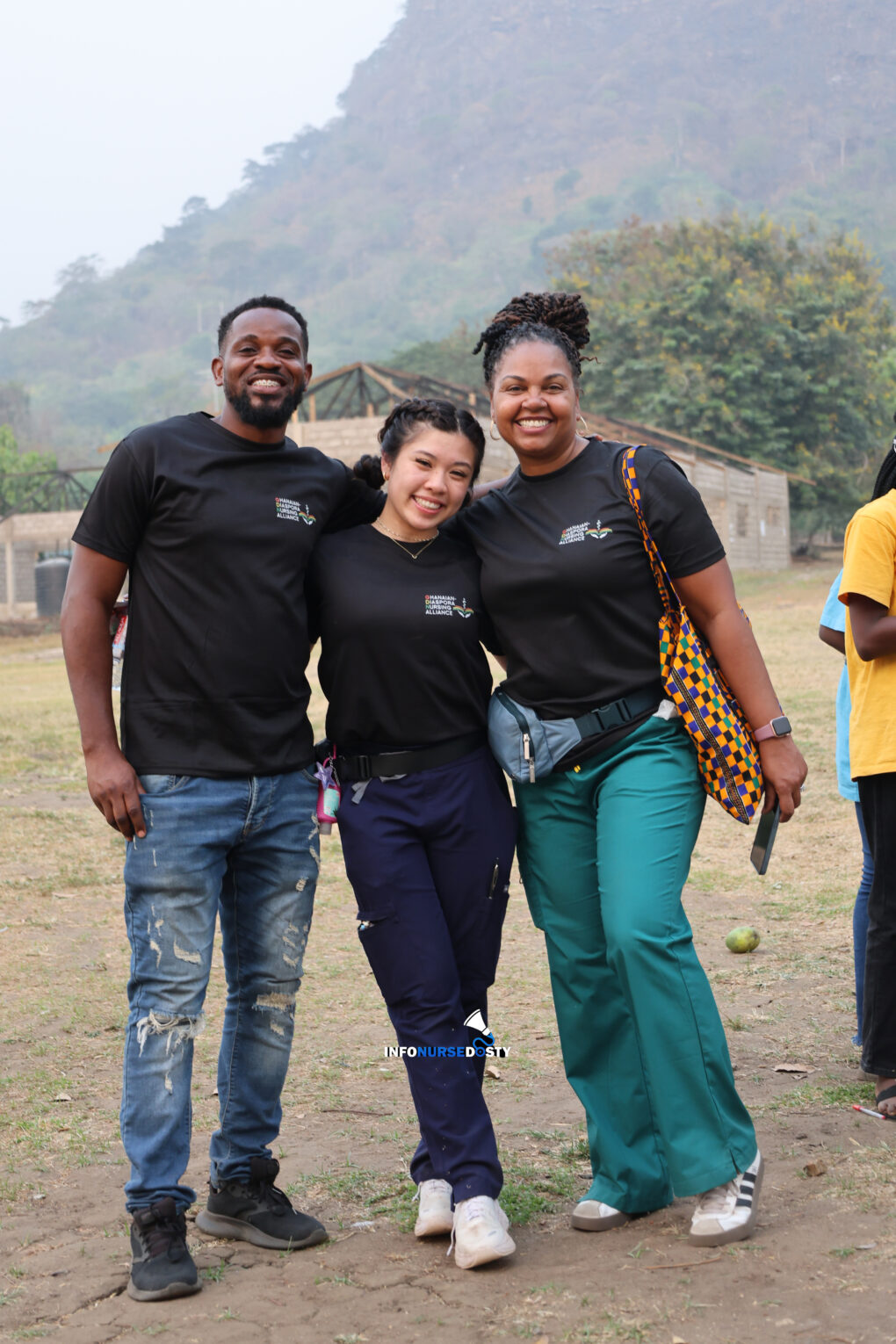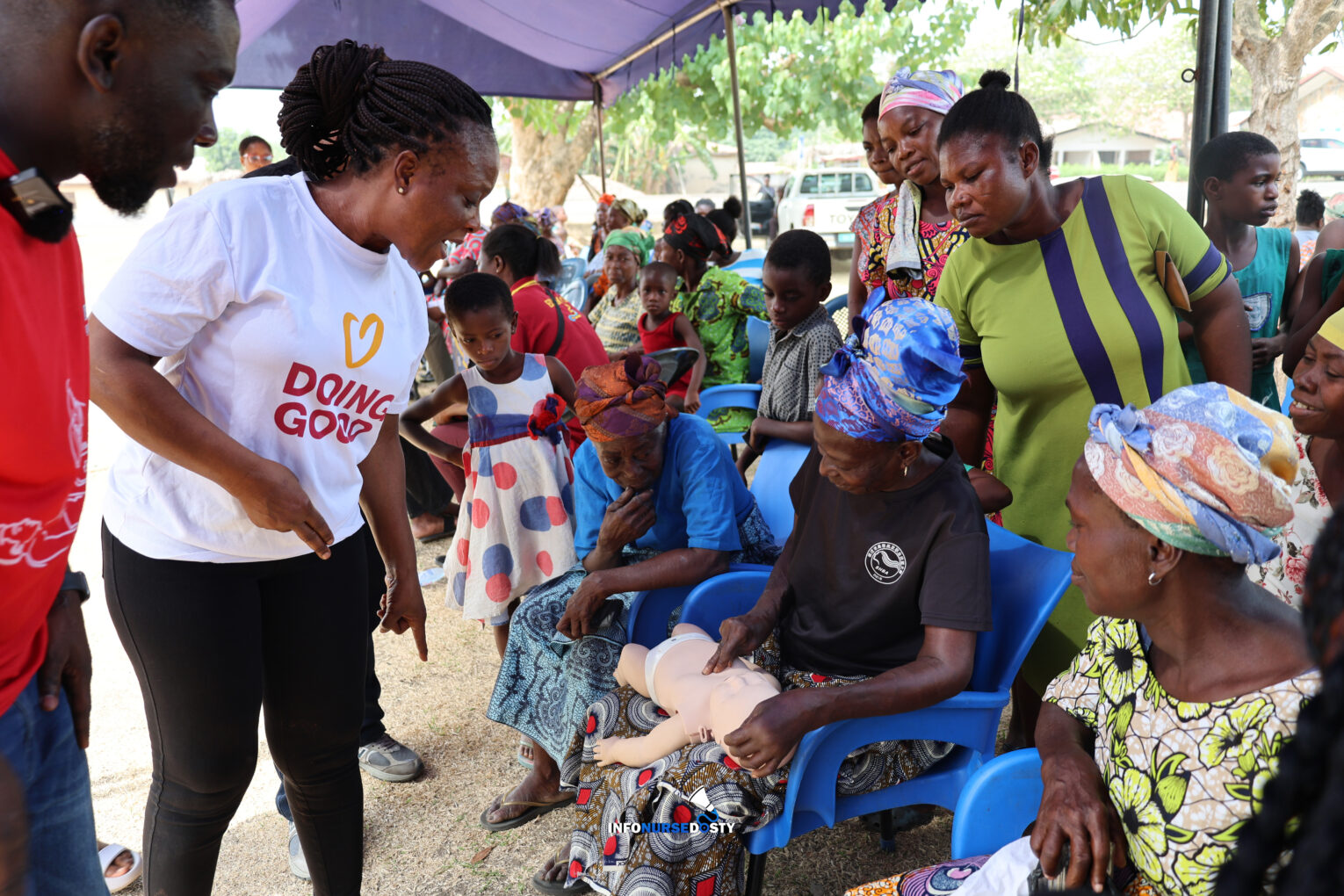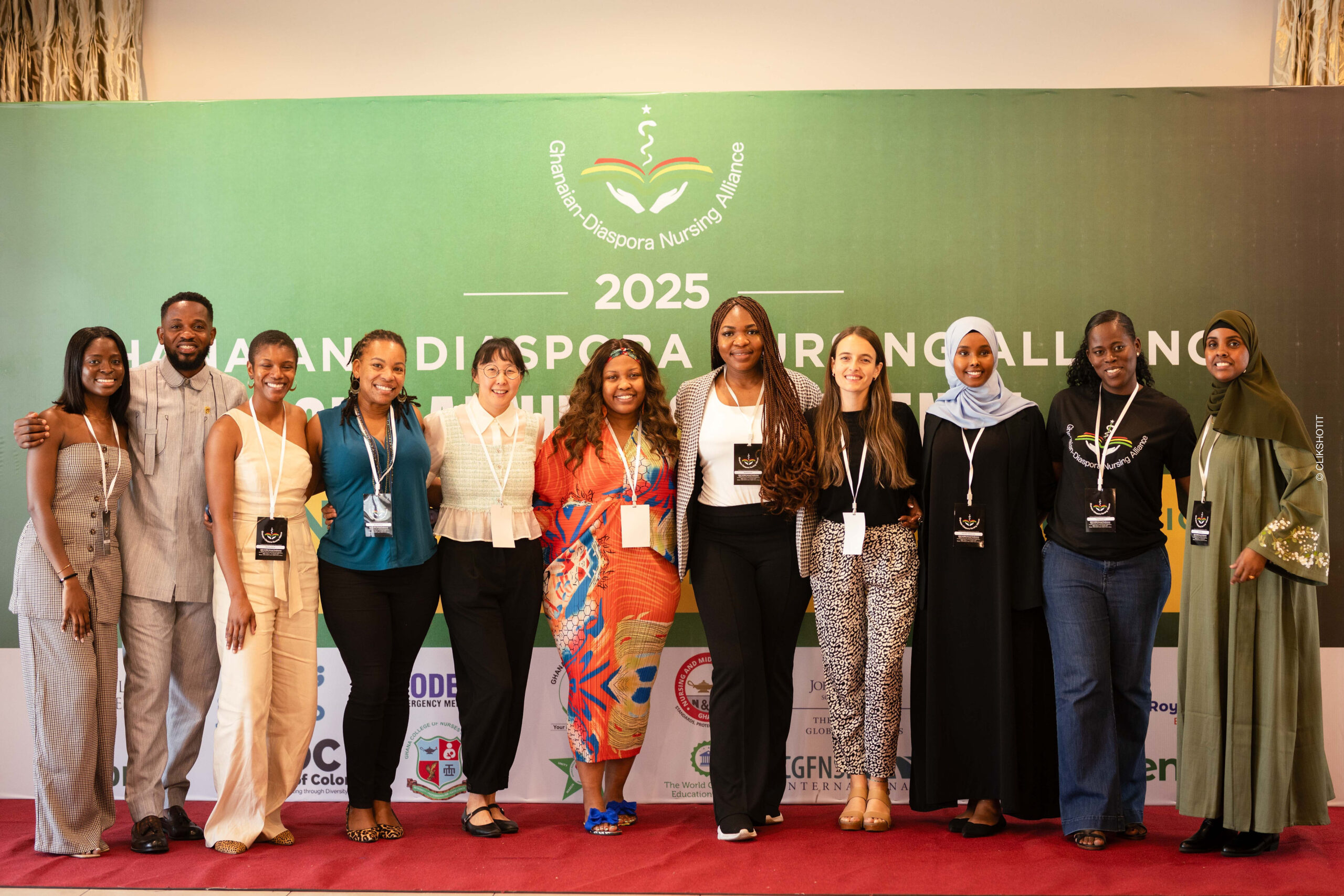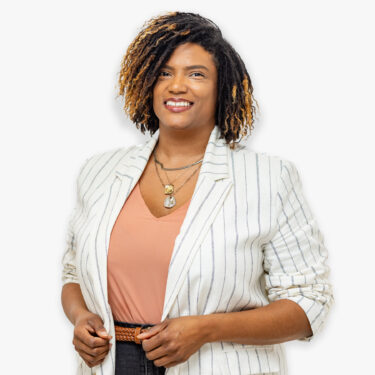Brain gain. It’s the opposite of ‘brain drain’ and raises the question: “How can we collaborate with the diaspora to advance nursing and midwifery education in Africa?”
With ‘brain drain,’ the concern is that nurses and midwives are leaving their homeland for a better life abroad—siphoning away much needed human capital and leaving the country under-resourced. However, Dr. Yvonne Commodore-Mensah and Dr. Matilda Decker, faculty and Ghanaian nurses who have made a new home in America, built the Ghanaian-Diaspora Nurses Association (G-DNA) to bring the diaspora home.
“Ghanaian nurses don’t have to move back, but they can bring their skills back,” says Dr. Commodore-Mensah.
Ghanaian people who have left, Ghanaian people who stayed, people of African descent across the continent and the world—and really all nurses who want to give back to Ghana and to Africa — can find an outlet through G-DNA to share their expertise with Ghanaian practitioners and with each other. In just 3 years, G-DNA has welcomed almost 3000 nurses and midwives from all over the world. The organization has also been a key player in ongoing policy to remove red tape to practice for Ghanaian nurses, facilitating an easier pipeline to practice in the country.
January 2025 marked their second annual conference in Accra, Ghana. Dr. Commodore-Mensah and Dr. Decker were joined by faculty Dr. Danielle McCamey, (CEO of DNPs of Color, which was one of the sponsors of the conference), Dr. Diana Baptiste, and Dr. Cynda Rushton, as well as alumni Dr. Jacqueline Idun and Dr. Sylvanus Mensah. They were also joined by 10 students — the inaugural cohort for service learning in Ghana.
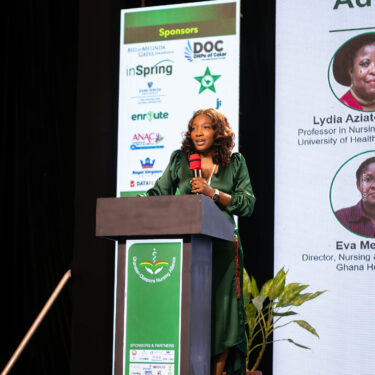
“Knowledge sharing goes both ways.”
Yvonne Commodore-Mensah, PhD, MHS, RN, FAAN, FAHA, FPCNA
Students of the diaspora
In traditional service-learning, students have the opportunity to contribute to established clinical missions, hopefully informed by recipients’ needs. But with G-DNA as a jumping off point, it’s a paradigm shift—students attend the conference, learn from Ghanaian nurses who are globally recognized for their contributions to nursing science, and work alongside them. “That way, knowledge sharing goes both ways,” says Dr. Commodore Mensah.
A highlight was the conference hackathon. Students were able to join global, multidisciplinary groups of health professionals, researchers, policymakers, and entrepreneurs to collaboratively come up with a local solution to a health care problem.
“It was a great way to start the trip,” says Sterling Wilmer, DNP candidate. “My group addressed issues with the DTaP [diphtheria, tetanus, and pertussis] vaccine.” The challenge was that resources are being wasted due to ineffective tracking of vaccination schedules, inconsistent follow-ups, and education for mothers that was incomplete. “We proposed pamphlets and in-person education at facilities with a high influx of pregnant women, ensuring better awareness and adherence to the vaccination schedule.”
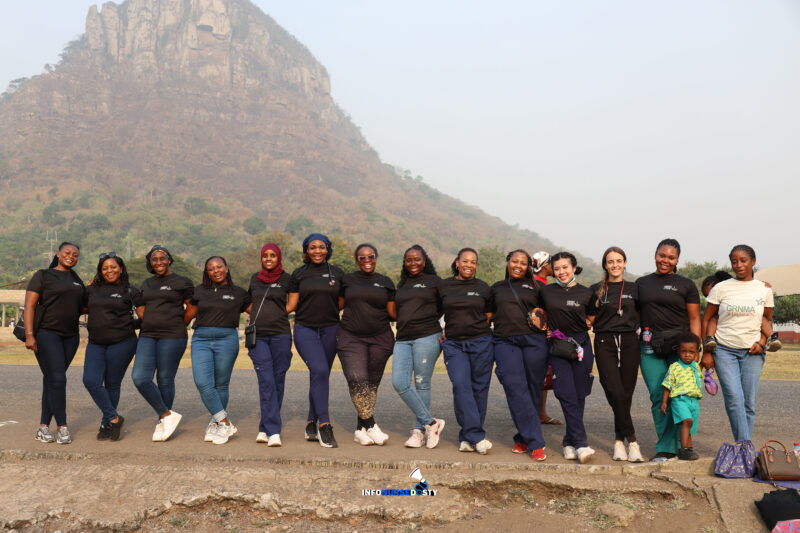
From Accra to Volta
After the conference, the JHSON cohort traveled about four hours north to the Volta Region of Ghana to participate in a health fair. “We didn’t do it alone,” says Dr. Commodore-Mensah—they worked with partnering Ghanaian organizations. “The students very quickly found a niche and did it joyfully.”
At a pharmacy station, students helped distribute medications and provided education on proper usage. Nearby, others conducted eye exams and assisted with women’s health services, working alongside experienced midwives to perform breast exams and Pap smears. Two students served in a mobile lab clinic that was operated in partnership with the OKB-Hope Foundation, coordinated by Dr. Jacqueline Idun.
“We tested for HIV, malaria, hemoglobin levels, and blood glucose,” explained Wilmer. “These tests are often inaccessible to many community members, so it was rewarding to help bridge that gap.”
“We were welcomed with open arms, but we belong to an institution and country that has to prove that we are actually invested in equitable, sustainable partnerships and two-way learning.”
Sterling Wilmer, DNP candidate
Impact that lasts
What set this experience apart was its tailored focus on creating a lasting impact—on the students and the communities they serve.
Five master’s students and five DNP students participated, with preference given to those actively working on projects in Ghana. Of the 10, five were students of African descent, creating a meaningful connection with the cultural and historical context of their work. Students learned from globally recognized Ghanaian nurses and innovative practitioners at the community and system levels, who deliver high-quality care even in underfunded environments. One young nurse, for example, manually aerosolized medication for a patient struggling to breathe, despite lacking the proper equipment.
The trip was also a profound cultural experience. Students visited the Door of No Return, learning about the Transatlantic Slave Trade from its source. This encounter was a paradigm shift for many, altering their understanding of the legacy of racism and how it manifests in modern health care inequities.
“Students have the opportunity to see where they can contribute when they are finished but even now,” says Dr. Commodore-Mensah. The group visited the University of Health and Allied Sciences, the first university in Ghana with a nurse as its Vice Chancellor. Many students left eager to guest lecture one day, thereby extending the knowledge exchange.
“We were welcomed with open arms, but we belong to an institution and country that has to prove that we are actually invested in equitable, sustainable partnership and two-way learning.” said Sterling Wilmer, DNP candidate. “Forging these partnerships intentionally and showing we’re committed to the decolonization and globalization of nursing care is going to be pivotal in how the world receives Hopkins nurses.”
